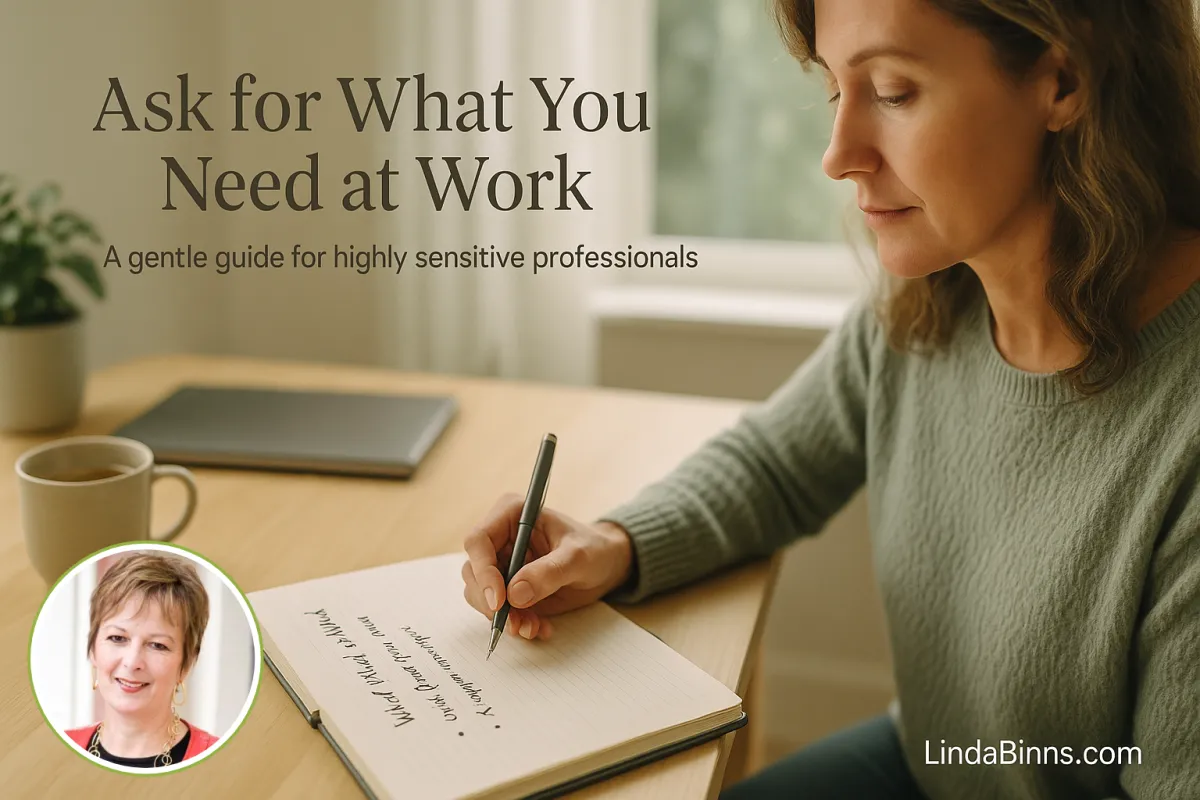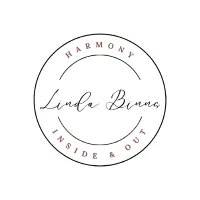BLOG
HOME /BLOG

You’re Allowed to Ask for What You Need at Work
You’re Allowed to Ask for What You Need at Work
“Be strong enough to stand alone, smart enough to know when you need help, and brave enough to ask for it.” – Ziad K. Abdelnour
When You’re Used to Managing Alone
Many highly sensitive professionals tell me some version of this:
“I’m exhausted, overwhelmed, and constantly on edge… but I don’t know what to ask for, or how to ask without sounding difficult.”
If you’ve spent years quietly absorbing noise, expectations, and extra work, it can feel unfamiliar — even risky — to say, “This doesn’t work for me.”
You might worry about:
• Being seen as needy or high-maintenance
• Burdening others
• Rocking the boat in an already stressful workplace
So you stay silent. You work harder. You push through… and your energy slowly drains away.
The good news is: asking for what you need is a skill.
And like any skill, it can be learned, practiced, and strengthened — gently.
Step 1: Start with What You Don’t Want
If you’re not sure what you need, begin with what you know you don’t want.
For example:
• Constant noise and interruptions
• Long, unstructured meetings that drain you
• A boss who seems disinterested or dismissive
• A work culture where no one acknowledges your contributions
Write it all down — even the things you think you cannot change.
This simple list is not about complaining. It’s about self-awareness.
You’re learning how your energy is affected by your environment and relationships.
Then, for each “I don’t want…” gently ask:
“If I didn’t have this, what would I like instead?”
• “I don’t want constant interruptions” → “I would like protected focus time.”
• “I don’t want fluorescent lighting all day” → “I would like softer, indirect light near my workspace.”
• “I don’t want to feel ignored” → “I would like the experience of being appreciated and valued.”
Now you’re beginning to map what actually supports you.
________________________________________
Step 2: Notice What Drains You — and What Restores You
As a highly sensitive person, your nervous system is finely tuned.
Certain things will exhaust you faster than they do others.
Ask yourself:
• Who or what leaves me feeling empty, tense, or overwhelmed?
• Who or what leaves me feeling calm, energized, or quietly inspired?
You might notice:
• Chatty, self-focused colleagues leave you depleted.
• A short, genuine check-in from a thoughtful coworker lifts you.
• Harsh lighting or strong scents drain you.
• A brief walk outside between meetings restores you.
This isn’t about judging other people. It’s about understanding your energy patterns so you can make clearer choices and requests.

________________________________________
Step 3: Turn Awareness into a Clear, Respectful Request
Once you know what you want more (and less) of, the next step is to ask.
Many HSPs tell me: “They should already know.”
But people who are not highly sensitive simply don’t experience the world as you do. They can’t read your nervous system.
Your job is to speak for your energy — kindly and clearly.
A helpful guideline:
Describe how you work best, and frame your request in a way that benefits everyone.
For example, instead of:
“This office is so noisy, I can’t stand it. I want to work from home.”
Try something like:
“I do my best, most focused work in a quiet environment. I’ve noticed my productivity increases significantly when I can concentrate without interruptions. I’d like to propose working from home two days per week (or using an empty conference room on specific mornings) so I can deliver stronger results on my projects. Could we explore this for a trial period?”
Notice the difference:
• You’re not blaming anyone.
• You’re clear about your need.
• You’re showing how it helps your boss, team, and company.
This is not selfish. It’s aligned.
________________________________________
Step 4: When You Can’t Ask Directly, Use Your Energy
There will be things you can’t directly change — like a particular boss or the entire culture of an organization.
Here’s where your inner work becomes powerful.
Choose one situation and spend a few minutes each day visualizing how you would love it to be:
• A boss who recognizes your true abilities
• A team that respects your boundaries
• A workplace that feels calm and supportive
What would that look like?
How would it feel in your body to walk into that environment?
You don’t have to know how it will happen.
By focusing on what you want (instead of only on what’s wrong), you gently begin to shift your energy — and often, your experience begins to change too.
At the same time, give yourself what you wish others would give you:
• If you long to be valued → practice valuing your own contributions.
• If you long for kindness → speak kindly to yourself throughout the day.
You have more power than you think.
________________________________________
Step 5: Practice One Small Ask This Week
To make this practical, choose one small, doable request:
• 90 minutes of uninterrupted focus time each morning
• Permission to close your door or use headphones for deep work
• A quick check-in with your manager to clarify priorities
• A short walk break between intense meetings
Write it down.
Practice saying it out loud in a calm, grounded tone.
Then, when you feel ready, ask.
Each time you do this, you reinforce an important message to yourself:
“My needs matter. My energy matters. I am allowed to be supported.”

A Gentle Invitation: Upcoming Workshop
If you often feel “too sensitive,” worry about being “too much” when you ask for what you need, or struggle with a constant sense of not being enough at work, I’d love to support you more deeply.
I’m hosting a live online workshop:
🌟 Breaking Free from Imposter Syndrome & the “Not Good Enough” Trap
🗓️ Tuesday, December 9th at 10am Pacific (live online workshop)
We’ll explore:
• Why imposter thoughts are so common for highly sensitive professionals
• How unrealistic self-expectations drain your energy
• Simple, practical ways to honor your needs without feeling guilty
You’ll find the registration link and details alongside this article.
If this resonates, you’re warmly invited to join us.
________________________________________
Reflection Questions
• Where in your work life are you expecting others to “just know” what you need?
• What is one small, specific change that would make your workday feel lighter?
• What would it look like to ask for that change in a way that benefits everyone?
________________________________________
More Resources
If you’d like additional support in honoring your sensitivity at work, you may also enjoy:
• My books and resources for highly sensitive professionals – you’ll find them on my books page at LindaBinns.com.
• My guides on boundaries, self-care, and transforming stress (DM me if you’d like a PDF recommendation).
I guide you to clarity, so you can take aligned action that truly supports your energy and the work you’re here to do.

Linda Binns
The Breakthrough Energy Expert
© 2023 | Privacy Policy

Facebook
Instagram
LinkedIn
Youtube